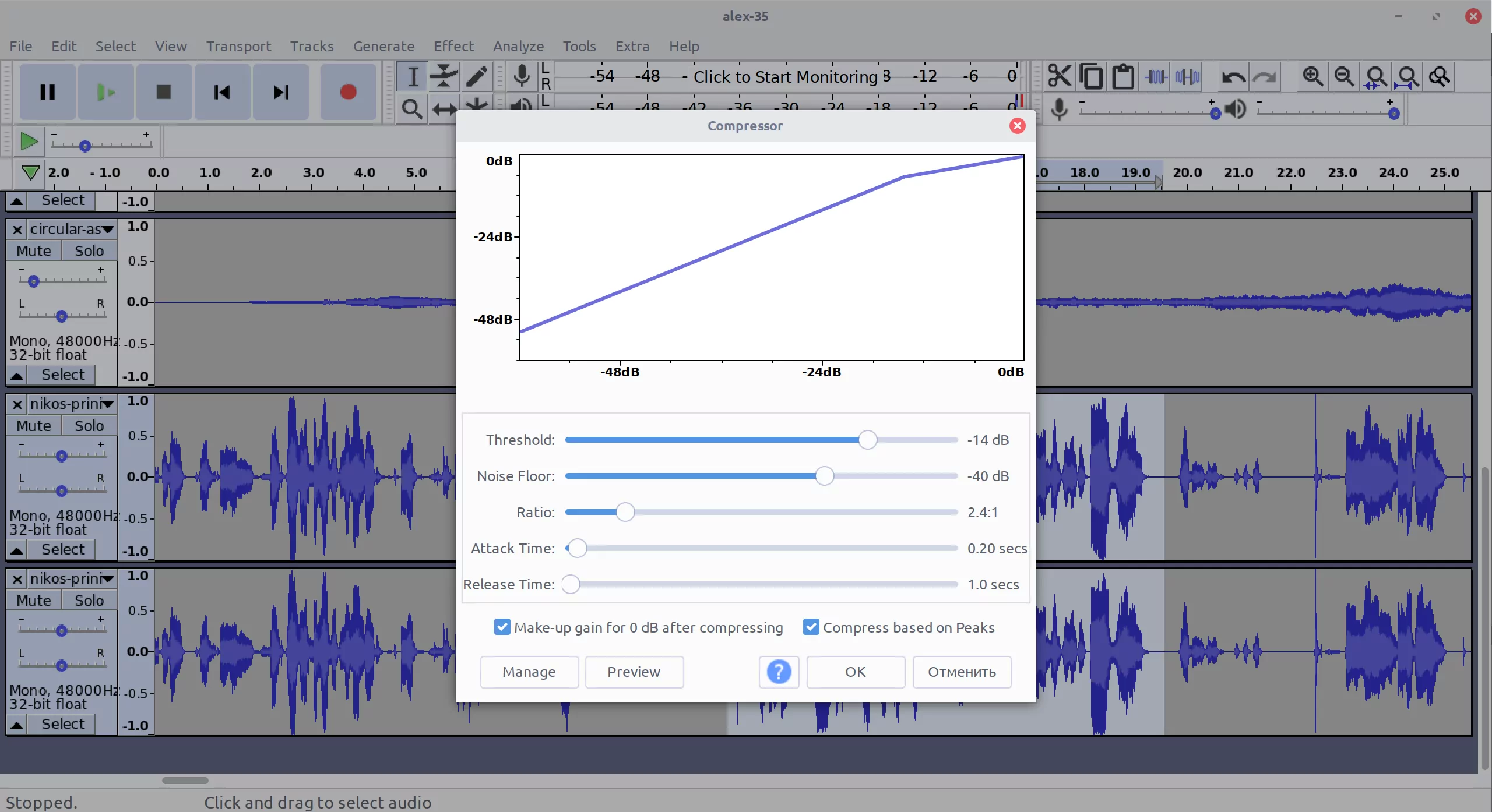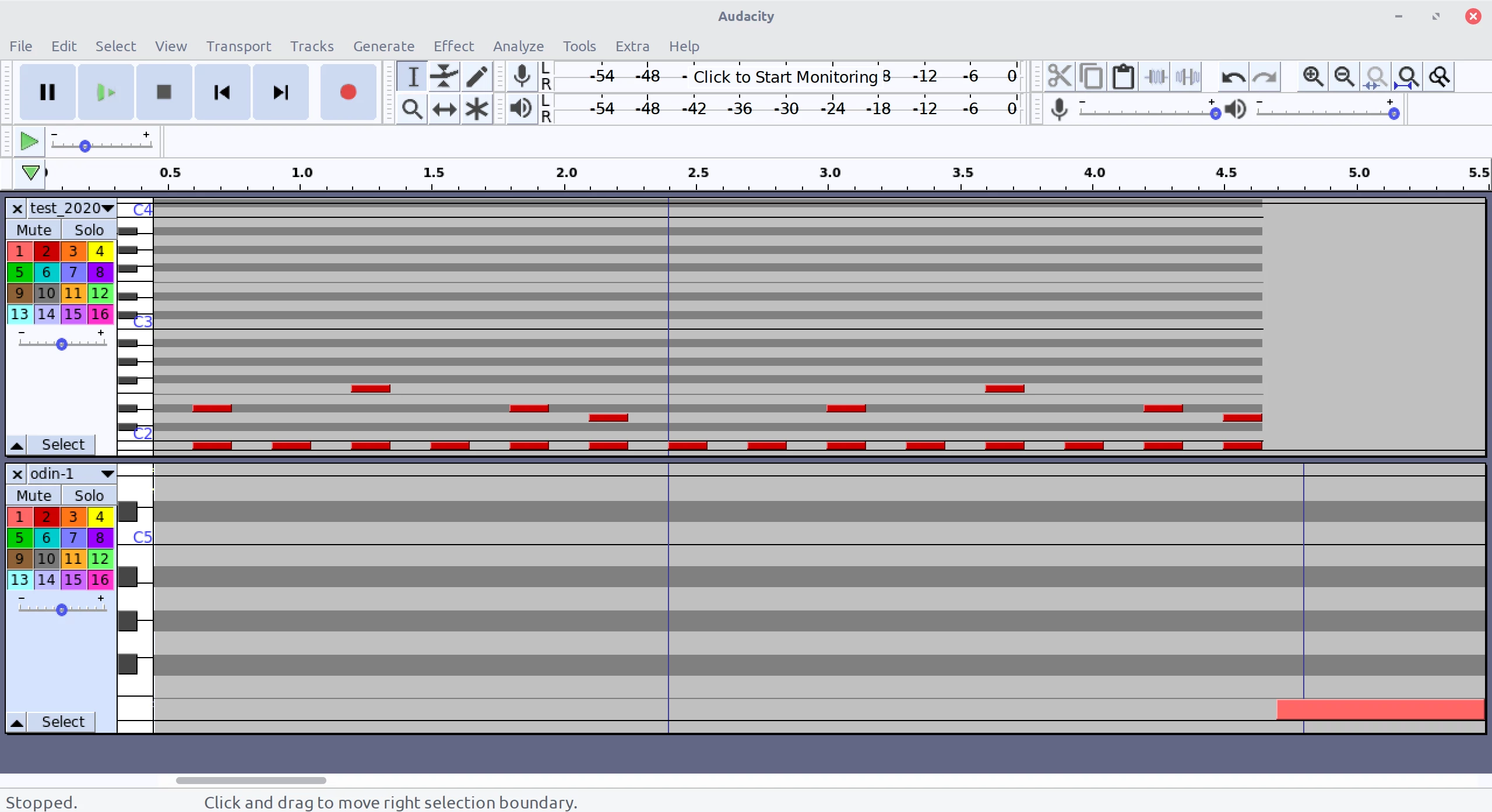Ultimate Guitar launches Muse Group and acquires Audacity
by Alexandre ProkoudineThe famous free/libre audio editor will stay free/libre

This isn’t your average software company press release: Martin “Tantacrul” Keary released a new video on his personal YouTube channel to announce that Muse Group is now the owner of Audacity, and he is now the product owner of this project.
Wait, Muse… Who?
Alright, let’s roll back a bit.
A while ago, Ultimate Guitar, the company known for successfully solving the guitar tabs licensing puzzle (which is a hell and a half for lawyers), began acquiring other companies and software projects.
In 2017, they acquired MuseScore, a WYSIWYG free/libre score engraving program that came with an online service to store and share sheet music. They kept the original team as consultants for about a year or so and began hiring developers to work on both the desktop app, the mobile app, and the online service.
They also hired Martin Keary — probably the only person in the whole world who managed to make poking fun at usability of score editing programs (as well as some cultural phenomena) a real treasure to watch. Imagine watching a 1+ hour long roasting of Dorico and laughing so hard that your neighbors call the police suspecting you are doing drugs.
Martin started out as the UX architect of MuseScore, moved on to become the product owner, and he is now the product owner of Audacity as well.
They made more acquirements in the past few years, and now they moved all these assets into a new business called Muse Group. It was almost silently announced on April 26.
What’s the deal with Audacity?
Simply put, it’s a very nice free/libre multitrack sound editor that works on all major desktop platforms, has a brand with 21 years of history, and some 100 mln downloads — all that despite some dated looks and somewhat complicated workflow.

An aside note: I’d like to see Amazon/Ebay scammers try to mess with Ultimate Guitar. I’d reaaaaaly love to see that. We could be looking at far less of the BestAudioApp 2021 paint job over Audacity nonsense all around.
Naturally, there have been concerns about the future of Audacity. So Daniel Ray stepped in to address that in the comments section of the news post at Scoring Notes:
Audacity will remain 100% forever with no feature tiers or limitations.
Just as with MuseScore, users can expect optional cloud services (file storage, sharing, etc.), but such capabilities are optional and the software is fully-featured and fully-functional without this.
Though Muse Group as a concept is quite new, it is same philosophy, same model, and same team as Ultimate Guitar. What you should expect from Muse Group moving forward is pretty much what you have seen with MuseScore since the acquisition.
As we continue to make acquisitions, we will not likely change existing business models very much. We’ll try to make as much as possible as free as possible (while respecting rights holders), and will heavily invest in product development, rapidly expanding product teams with the best and brightest we can find.
How does one actually buy a free/libre project with well over a hundred contributors?
That’s a great question!
Audacity happens to have a registered trademark — Dominic Mazzoni, the original developer, did it in early 2000s.
Beyond that, copyrights can be traded, and I expect that at least some of the team members could have done just that. So that would technically give Muse Group some control over a large part of the code base. But it’s just my guess so far, I sent this question to the press people over at Muse Group and will update the post once/if I hear back from them.
What should we really expect?
Martin said that plans for Audacity are a work in the progress. Yet he specifically said two things:
- Usability improvements (easy to predict)
- Non-destructive editing (much appreciated and long overdue)
For the latter, only VSTs have been mentioned so far. Much of MuseScore v4 is based on VST3, so relying on the same technology stack makes sense.
But there could be more.
Audacity has had the beginnings of MIDI tracks for a very long time. The team never went much beyond merely rendering notes in an inline view (similar to that of Ardour) and an humble attempt at playback. But it’s there. So after much internal rewrite we could be looking at a new DAW.

Will it happen? Based on things I overheard in some online conversations, for now at least, Muse Group is only looking into making better what’s already there. It’s how they started with MuseScore though, and look what happened next :) Either way, this is not something you should be expecting any time soon, and it’s clearly in the wishful thinking territory right now.
The non-destructive editing feature will certainly demand some rewrite. I think there have been at least two attempts to replace the original playback engine in Audacity before.
Also, please don’t expect me to guesstimate their interest in rewriting Audacity with Qt/QML. Yes, Audacity’s source code base is 1/10 of that of MuseScore, so it’s technically doable. Should they do it? I don’t know and, frankly, I don’t really care. I do genuinely believe that toolkit wars are a stupid waste of anyone’s time.
Will the former team stick around and in what capacity?
I don’t know yet. I’ve reached out to Muse Group for comments and will update this post as I find out more. I don’t expect the Audacity team to be able to talk much about this, based on my experience with the similar situation in MuseScore. All I know is that the original MuseScore trio had a short contract as consultants. So there could be a similar situation here.
Will Muse Group stay true to their promise keeping Audacity free/libre?
I think it’s worth looking at what they did with MuseScore over the past 4 years:
- Larger, paid team of developers, hence…
- Regular updates with new features and bug fixes.
- Cleaner user interface.
- A complete rewrite to make way for new major features like the composition/sequencer mode (to be available after the 4.0 release).
- A new notation font.
- Upcoming relicensing from GPLv2 to GPLv3 (probably not the new playback engine though, for currently unknown reasons).
This is a pretty solid track record (pun intended).
And it’s not exactly a new thing in the creative domain either. If I recall correctly, OpenToonz was sold to Dwango on the condition that the source code would be released under an open source license. Which it was — Dwango chose BSD 3-Clause.
Will there be more acquirements of free/libre projects?
Daniel specifically said “as we continue to make acquisitions”, but otherwise your guess is as good as mine. There will definitely be more proprietary software acquisition announcements in the future. There’s one in the pipeline right now, if you know where to look.
One fun version I heard is that LMMS is next. But, like I said, your guess is as good as mine. So far, the “new” (after four years? hmmm) MuseScore team is an entity that relies on free/libre philosophy, operates in the creative field and does rather than talks while staying respectful to the inherited community. So I’d carefully expect the new Audacity team to follow suit.
Patreon subscribers get early access to my posts. If you are feeling generous, you can also make a one-time donation on BuyMeACoffee.
